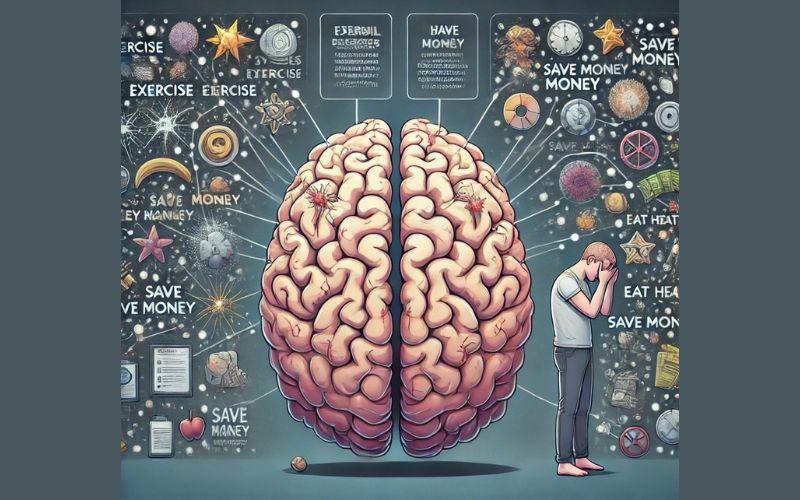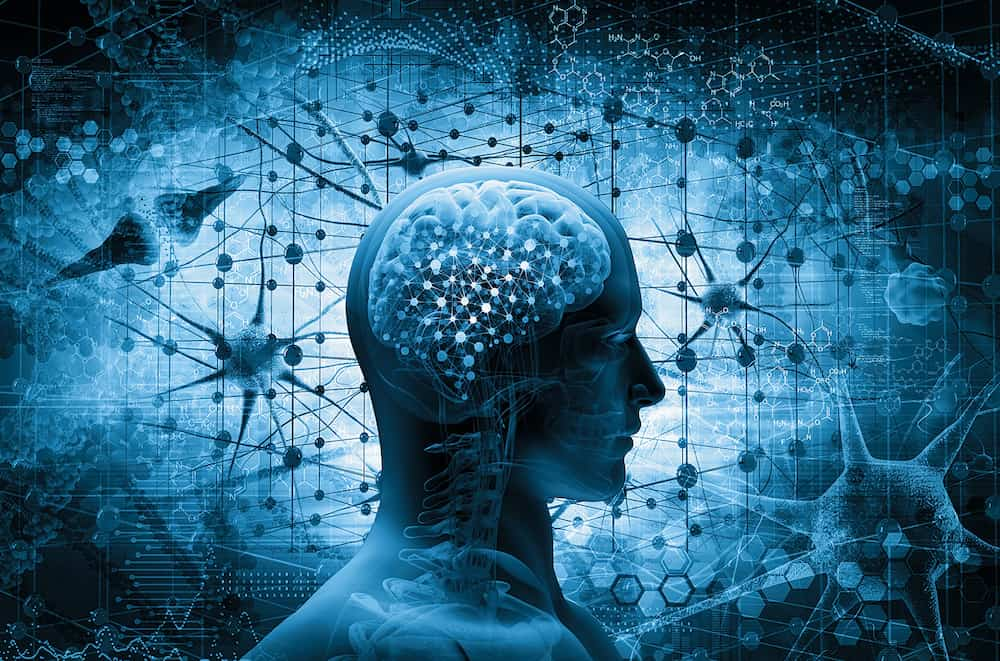Why New Year’s Resolutions Fail: A Neuroscience and Psychological Perspective
By Charles Miler, CRNA, CMO, Founder of Scenic City Neurotherapy
As the new year approaches, people everywhere feel excited and motivated to set fresh goals, often known as New Year’s resolutions. But as quickly as this enthusiasm arises, it tends to fade—most resolutions fail by February. The question is: why? This blog will explore the reasons behind these failures from a neuroscience and psychological standpoint and how treatments like Minimally Stimulated Minimally Stimulated Ketamine Infusion Therapy (MSKIT®) and Transcranial Magnetic Stimulation (TMS) can help provide support.
The Neuroscience of Habit Formation
Brain Chemistry and Habits
Habit Formation: Understanding how the brain works can illuminate why making lasting changes is so complex. Habits are stored in a part of the brain called the basal ganglia, which is responsible for automating behaviors. Meanwhile, the prefrontal cortex plays a crucial role in decision-making and setting new goals. However, the more ingrained a habit is, the more difficult it becomes for the prefrontal cortex to override the automatic behaviors controlled by the basal ganglia.
Dopamine and Reward Systems: Dopamine, a key neurotransmitter, plays a vital role in motivation and the brain’s reward system. When we succeed in a task, dopamine levels increase, giving us a sense of pleasure and encouraging us to repeat the behavior. Unfortunately, when the brain doesn’t receive an immediate reward, dopamine levels drop, and so does our motivation to continue. This explains why we often abandon resolutions—without consistent rewards, the brain’s motivation systems fail to engage.
The Neuroscience of Failure
Neural Pathways: When we set out to form new habits, we’re trying to create new neural pathways in the brain. However, the brain’s preference for efficiency relies heavily on established pathways or old habits, making it difficult for new behaviors to take root. This neural resistance is a significant factor in why resolutions often fail.
Overcoming Neural Resistance: The good news is that the brain is adaptable, a phenomenon known as neuroplasticity. With persistence, new habits can be formed, requiring repetitive action and commitment. Overcoming neural resistance means being patient with yourself as you attempt to rewire your brain for success.
Psychological Barriers to Success
Before diving into these common psychological obstacles, it’s important to know that each of them can be overcome. Later in this blog, we’ll explore actionable strategies to address these challenges, helping you approach your resolutions with a stronger foundation.
Common Psychological Obstacles
Unrealistic Goals: One of the most common reasons New Year’s resolutions fail is that people set unrealistic or vague goals. Resolutions like “get fit” or “save more money” lack specificity, making it hard to measure progress and stay on track.
Lack of Planning: Without a concrete plan, even the most well-intentioned resolutions will likely falter. With clear steps and milestones, it becomes easier to maintain focus and motivation.
Behavioral and Cognitive Factors
Self-Sabotage: Psychological phenomena such as self-sabotage play a significant role in the failure of resolutions. Self-sabotage often stems from underlying fears, insecurities, or a fear of failure, which can prevent you from making meaningful progress.
Cognitive Biases: Optimism bias is another obstacle to resolution success. This bias makes us overestimate our ability to stick to goals or underestimate the challenges. As a result, we’re often unprepared for the effort it takes to make lasting changes.
Emotional and Motivational Challenges
Temporary Motivation: It’s normal for motivation to fluctuate over time. While the initial burst of New Year’s enthusiasm might drive you to set ambitious goals, motivation naturally wanes. Being prepared for these dips in motivation can help you stay on track, even when you’re not as driven.
Building Resilience: Emotional resilience plays a critical role in maintaining long-term goals. Setbacks are inevitable, but by developing problem-solving skills, stress management techniques, and a positive mindset, you can focus on your resolutions even when things get tough.
Flexibility and Adaptability: Another key to success is being flexible and willing to adapt your goals as needed. Life circumstances can change, and adjusting your strategies can help you continue progressing, even when obstacles arise.
Minimally Stimulated Ketamine Infusion Therapy (MSKIT®) and TMS
Minimally Stimulated Ketamine Infusion Therapy (MSKIT®)
Minimally Stimulated Ketamine Infusion Therapy (MSKIT®) is an effective treatment for enhancing mental health, supporting emotional regulation, improving cognitive clarity, resolving trauma, and elevating mood. It promotes neuroplasticity, the brain’s ability to form new connections. This makes it particularly effective in helping individuals break free from negative thought patterns and learn new, healthier behaviors.
By improving mood and increasing neuroplasticity, Minimally Stimulated Ketamine Infusion Therapy (MSKIT®) can help individuals stay motivated and open to new habits, offering a much-needed boost in the face of discouragement or emotional fatigue.
Transcranial Magnetic Stimulation (TMS)
TMS is a non-invasive treatment that uses magnetic fields to stimulate nerve cells in the brain. This therapy has been shown to improve mood, cognitive function, and emotional regulation,
TMS enhances communication between neural pathways and promotes neuroplasticity. By improving mood and focus, it makes it easier to stick to goals. When emotional or mental health challenges impede progress, TMS can provide the support needed to stay on track.
Choosing Between MSKIT® and TMS
Choosing between Minimally Stimulated Ketamine Infusion Therapy (MSKIT®) and TMS often comes down to personal preference and specific treatment goals. For those who prefer pharmacological approaches, MSKIT® offers a broader effect, promoting global connectivity across various neural networks. On the other hand, TMS provides a more targeted approach, stimulating specific areas of the brain associated with depression and anxiety, which might appeal to those looking for non-pharmacological options. Our provider will work with you to determine the best option for your needs.
Integrating Strategies for Resolution Success
Combining Approaches
Holistic Strategy: The most effective way to approach New Year’s resolutions is by integrating neuroscience and psychological strategies with supportive neurotherapy treatments like Minimally Stimulated Ketamine Infusion Therapy (MSKIT®) and TMS. This comprehensive approach ensures you address the brain’s biology, mental health challenges, and psychological barriers.
Personalized Plans: Creating a customized plan that reflects your unique needs and circumstances is vital to achieving lasting change. What works for one person might not work for another, so developing a strategy that fits your lifestyle and mental health needs is essential.
To help you develop a plan tailored to your unique needs, consider seeking support from professionals. Scenic City Neurotherapy connects patients with therapists and counselors who can offer guidance and accountability. These professionals can provide insights, personalized strategies, and regular check-ins, all of which are crucial for staying on track and overcoming challenges along the way.
Actionable Steps
Milestone Planning: Rather than setting one significant goal, break it down into smaller, manageable milestones that can be achieved over time. At Scenic City Neurotherapy, we’ve seen how this approach helps patients make steady progress and maintain motivation as they move towards larger objectives.
Habit Formation: Establish a daily routine with time dedicated to working on your goals. Routines help automate behaviors, making it easier to stick to your resolutions over time. Scenic City Neurotherapy offers tools like the Osmind app, where you can track your progress and make adjustments as needed.
Track Progress Regularly: Keeping a progress log keeps you focused and motivated. The Osmind app allows you to track your progress daily, ensuring you’re always aware of how far you’ve come and what adjustments you need.
Set Up Accountability: Sharing your goals with an accountability partner increases your chances of success. Scenic City Neurotherapy connects patients with therapists, counselors, and life coaches who can provide support and guidance as they work toward their resolutions. A support system helps keep them on track, even when motivation wanes.
Conclusion
New Year’s resolutions often fail due to a variety of reasons including both physiological and psychological factors. Understanding how the brain forms habits, the role of motivation, and the psychological barriers that hinder progress can help you craft a more effective strategy.
Treatments like Minimally Stimulated Ketamine Infusion Therapy (MSKIT®) and TMS offer additional support by promoting neuroplasticity, improving mood, and helping you break free from old patterns. As you approach the new year, consider reflecting on your goals and seeking professional support when needed. With the right approach, achieving lasting change and making the most of your resolutions is possible.
About Scenic City Neurotherapy
Founded in 2019, Scenic City Neurotherapy is at the forefront of advanced and comprehensive treatments for those facing treatment-resistant conditions. Our mission is to optimize brain function and elevate well-being through cutting-edge therapies. We specialize in two pioneering approaches: Minimally Stimulated Ketamine Infusion Therapy (MSKIT®) and Transcranial Magnetic Stimulation (TMS).
If you are exploring innovative solutions for mental health, chronic pain, and other neuro-degenerative conditions, Scenic City Neurotherapy offers transformative treatment options. Join us in leading the charge towards groundbreaking brain optimization treatments and empowering individuals to reclaim their lives.
Contact Founder and Chief Medical Officer, Charles Miller today to learn more about our proven protocols for Minimally Stimulated Ketamine Infusion Therapy (MSKIT®). Call 423-228-0579 or visit www.ScenicCityNeuro.com.














